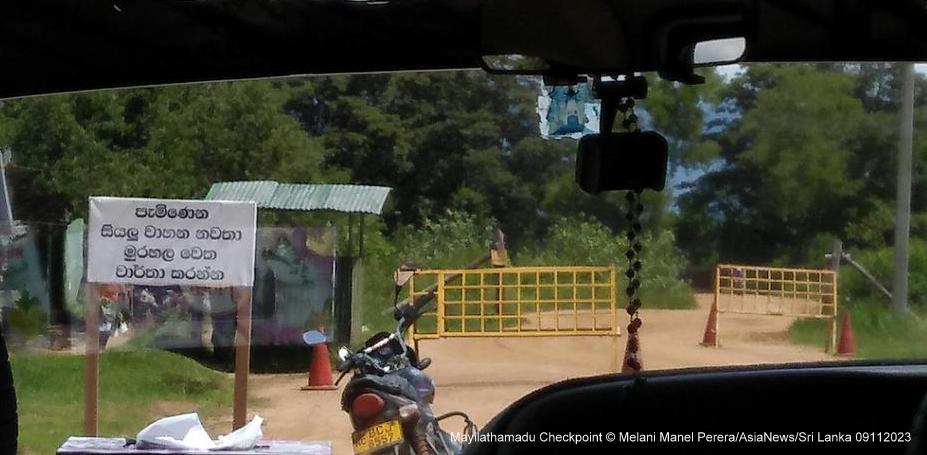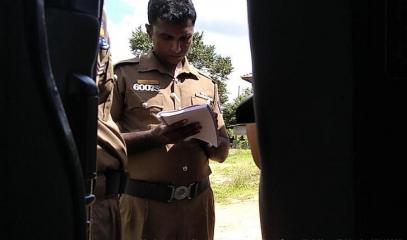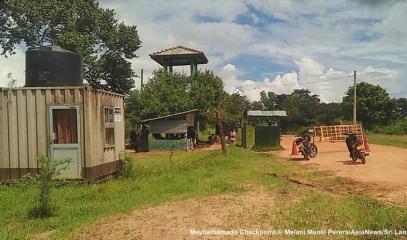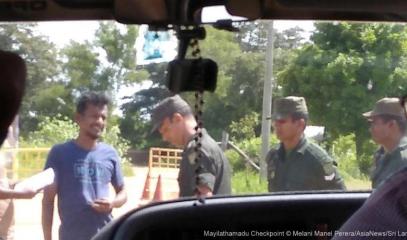Journalists prevented to report on Tamil-Sinhalese land dispute
A few days ago, a group of journalists was stopped at a checkpoint, denied without explanation access to Mayilathamadu, an area where tensions are running high between local Tamil herders and outside Sinhalese crop farmers, who are reportedly encroaching on local land.
Batticaloa (AsiaNews) – A group of journalists from the capital Colombo on their way to Mayilathamadu to talk to local farmers, said that a security unit stopped them at a checkpoint while allowing other travellers to go through.
In Tamil-majority Mayilathamadu, Tamil dairy farmers recently clashed with Sinhalese crop-growing farmers. The former claim that outside crop farmers have forcibly encroached on land that they use for grazing approximately 500,000 livestock, including cattle and buffalo.
At least six Tamil students who were protesting the land grab were arrested for “unlawful assembly”, but were later released on bail.
The journalists, both Sri Lankan and foreign, phoned the Karadianaru police station responsible for the checkpoint for authorisation to visit the area but were denied access because "there is a problem."
Subsequently, they contacted the senior deputy inspector general of police in charge of the Eastern Province, but they got no reply.
At the checkpoint, agents collected the journalists' personal details, including identity cards issued by the government’s Information Department, as well as their home and work addressees, and were held up for two hours.
While they waited, they saw other people pass unhindered. In addition to the police and the military, two individuals from the intelligence department also took photos and videos of the vehicle in which the group travelled.
Journalists believe the security forces and the government do not want the truth of what is happening revealed.
Ruki Fernando, an activist and columnist who was part of the group, spoke to AsiaNews about it.
“We believe this is a violation of our constitutional rights to freedom of speech, expression, and publication, freedom to engage in a lawful occupation, and freedom of movement, equal protection of the law, and non-discrimination,” he said.
In his view, it also constitutes the crime of unlawful restraint, which comes under the penal code.
24/01/2007










.png)










